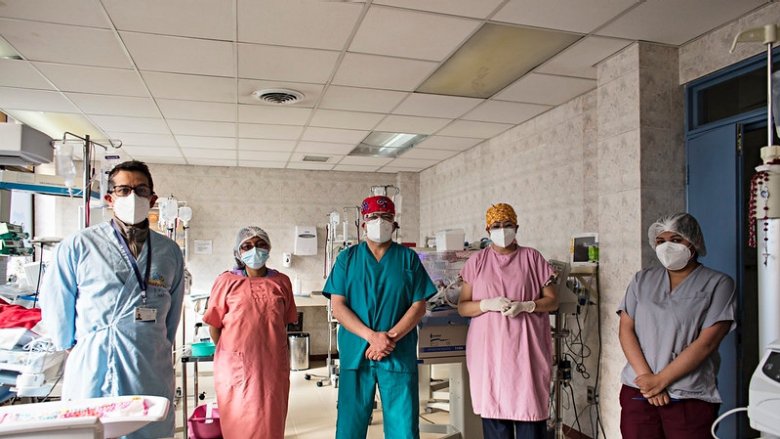The Pandemic Fund provides a dedicated stream of additional, long-term financing to strengthen critical pandemic prevention, preparedness, and response capabilities in low- and middle-income countries through investments and technical support at the national, regional, and global levels.
The devastating human, economic, and social cost of COVID-19 has highlighted the urgent need for coordinated action to build stronger health systems and mobilize additional resources for pandemic prevention, preparedness, and response (PPR). While there are many institutions and financing mechanisms that support pandemic PPR activities, none of them is focused solely on it. This means that spending on other immediate needs can take priority over critical pandemic PPR investments, some of whose return may only materialize in the future.
Recognizing the need to address chronic under-investments in pandemic PPR capacity, particularly in low- and middle-income countries, in April 2022, the G20 Finance Ministers and Central Bank Governors requested the World Bank begin exploring the process to develop and set up a new Fund. With broad support from the G20, the World Health Organization (WHO), founding donors, civil society, and other stakeholders, the World Bank’s Board of Directors approved the proposal to establish The Pandemic Fund on June 30, 2022.
The Pandemic Fund was officially established by its Governing Board at its inaugural meeting on September 8-9, 2022. It was launched at a high-level event hosted by the G20 Presidency of Indonesia, on the margins of the G20 Joint Finance and Health Ministers’ Meeting on November 13, 2022, in Bali, Indonesia.
The World Bank now serves as The Pandemic Fund’s trustee and hosts the Secretariat, which includes technical staff seconded from the WHO. The Governing Board appointed a Technical Advisory Panel, chaired by the WHO, with leading world experts to assess and make recommendations to the Governing Board on the technical merits of proposals for funding, ensuring linkages to the International Health Regulations, as part of the broader global PPR architecture.
In May 2023, the Pandemic Fund closed its first Call for Proposals, receiving 179 applications from 133 countries. On July 19, 2023, the Pandemic Fund’s Governing Board awarded a first round of grants totaling US$338 million that will mobilize over $2 billion to help 37 countries strengthen their capacity to prevent, prepare for, and respond to pandemics. Over 30% of the grants allocated are for projects in sub-Saharan Africa and over 75% of the projects supported by the first Call are in low and lower-middle income countries. The selected projects will receive funding to strengthen disease surveillance and early warning, laboratory systems, and human resources.
Avoiding future pandemics requires investing substantially more in prevention, preparedness, and response. These investments, which could target gaps in surveillance, laboratory capacity, risk communication, zoonotic disease, risk management and more, will help avert the much larger costs that the world would incur in a future pandemic. The Fund also aims to bring additional, dedicated resources, incentivize countries to increase investments, enhance coordination among partners, and serve as a platform for advocacy. It will also help to focus and sustain much-needed high-level attention on strengthening health systems while complementing existing mechanisms, engaging other key organizations and supporting regional initiatives that bring countries together.

